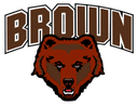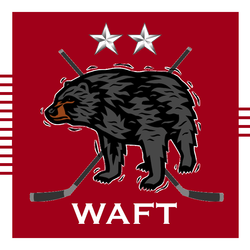
Record: 6-8-4
Series Record: 69-42-5
Saturday, January 26
Last Meeting:
November 5, 2011 and February 10, 2012
Last year, Cornell split the series with Brown. The first game against Brown, in November of 2011, came after a defeat of Yale that had been years in the making. Whether it had to do with last year's team being excited about their first win of the season, or some players getting their first career win against Yale, it led to a 5-4 loss. Cornell would not be swept by Brown last season, though. Cornell hosted Brown in February and came back to earn a 5-2 victory.
When it came to scoring against the Bears, Cornell was not at a loss, scoring four goals in the loss and five in the win, and it was mostly players who have not graduated that scored goals and assisted. Greg Miller scored three goals and assisted one; Esposito and Ferlin scored one goal apiece and assisted two each; Ryan and Mihalek scored a goal each; Mowrey assisted on two of Miller's goals; Axell, De Swardt, and Gotovets all tallied an assist. And Cole Bardreau scored a goal as well.
Brown was dead last in the league, despite taking a sweep out of the first-place finisher in the league. They pulled Quinnipiac in the first round of the ECAC playoffs. They won the first game, surprising everyone in the league, but Quinnipiac managed to win the next two, knocking off Brown.
This Season:
Brown currently sits at eighth in the league, tied with Clarkson and just ahead of Colgate, SLU, and Harvard. Their league record contains only two wins, but the reason why Brown holds eight points is because of their four ties. Brown's four ties have come in back-to-back sets. The first was against Clarkson and SLU at Meehan. The second was against Union and RPI at Meehan as well. The two ECAC teams that Brown managed to beat were Clarkson and Harvard. Brown's last win was a 5-2 victory over Harvard at Meehan, and the only road win the Bears have is against the Golden Knights of Clarkson. While a tie for eighth place does not sound wonderful, the middle of the league is very close right now.
Keys to the Game:
In terms of the unusual, Brown has one of the top goaltenders in the league, only after RPI's Kasdorf and just ahead of Quinnipiac's Hartzell. Brown's Anthony Borelli has a save percentage of .936 this season in his ten games started and a 1.79 GAA, coming in at 10 and nine in the country respectively. Neither of their special team units are incredibly impressive. Brown's special team units look similar in numbers to those of Cornell. The power plays are 16.4 for Brown and 15.2 for Cornell while the penalty kills are closer still at 76.5 and 75.7 respectively. Needless to say, this will not be a special teams battle. Depending upon which goaltender Brown starts, this will be a battle of goaltenders and forwards. For those who care about shots on goal, Cornell averages just under 28 while Brown averages 31.5. Cornell, however, has a better shot efficiency. Cornell will need to be able to solve Borelli should he be given the start and if not, they will have to play a great offensive, puck-possession game.
Historical Dimensions:
Brown is often known to others as a "season-spoiling team." While they have never won the Whitelaw Cup, they often come out of nowhere to ruin a team's season or to make a run at the ECAC Tournament. In the past five years, Brown has not finished with a home-ice advantage once. Its highest finish in the regular season was ninth place. In three of those years, Brown was knocked out in the first round of the playoffs by Quinnipiac (2008, 2011, 2012), but in two of those years it produced upsets. The first upset was short-lived. Brown beat eight-seeded Harvard to advance to the ECAC quarterfinals where it faced the eventual winner of the ECAC Tournament, Yale. Yale swept Brown. However, in the last five years, Brown has finished higher than its number another time. In the 2009-10 regular season, Brown finished in eleventh place overall. In the first round, they beat RPI in three games. The quarterfinals brought Yale. Brown toppled Yale in three games. Finally, Brown advanced to the ECAC Final Four in Albany where they faced Cornell. Cornell ended up shutting out Brown 3-0 en route to their twelfth Whitelaw Cup. Brown beat SLU the following day in the consolation game, finishing higher than they had in years.
Their regular seasons often end dismally, but they do great things within. Last year, they were the only ECAC team to sweep Union. They also pulled wins out of Cornell, Princeton, St. Lawrence, and Yale, as well as Hockey East teams such as UNH and Providence. In 2010-11, Brown swept three league teams, Colgate, Cornell, and St. Lawrence, and beat and tied Boston University. In 2009-10, they managed a Clarkson sweep, and in 2008-09 they beat Union, Colgate, and Quinnipiac as well as pushing seven games into overtime. 2007-08 saw a sweep of St. Lawrence and six regular-season overtime games, where only one resulted in a loss.
Brown may seem like a bottom-dweller to fans of Cornell in recent years, but it is not without history of its own. Not many teams have favorable percentages in the NCAA Tournament, but Brown has made the Frozen Four 75% of the time it has made the NCAAs. Brown was invited to the NCAA Tournament first in 1951, when it was still a four-team invite. The other teams in that year included Boston University, Colorado College, and Michigan. Brown faced CC in the first game, beating the Tigers 8-4, before finally losing to Michigan 7-1. The next time the Bears were invited was 1965, and the tournament was still a four-team dance. Boston College, Michigan Tech, and North Dakota were the other invitees and Brown lost in the first game to eventual national champion, Michigan Tech. (They also lost the consolation game to North Dakota.) Their third tournament was the final tournament they would enter in a four-team format. Brown was invited along with Boston University, Michigan Tech, and Minnesota. Brown played Michigan Tech in the first round, taking the Huskies to two overtimes before losing 7-6. The Gophers went away with that trophy, leaving Brown to win the consolation game 8-7. The last time the Brown Bears were in the NCAAs was 1993. The tournament had transitioned by that point to a 12-team format. Three ECAC teams were in the tournament in Brown, Clarkson and Harvard. Brown lost in the first round to Minnesota-Duluth. The other ECAC teams were eliminated in the first round, with Maine claiming the title.
Brown has been out of the NCAA Tournament for quite a while, but that hardly means it will stay that way. Making a run through the ECACs is never out of the question for this "season-spoiling" team.
The Bears may be an Ivy-League foe and opponent for Cornell in tonight's game, but their involvement with Team IMPACT deserves particular attention and commendation.



 RSS Feed
RSS Feed
